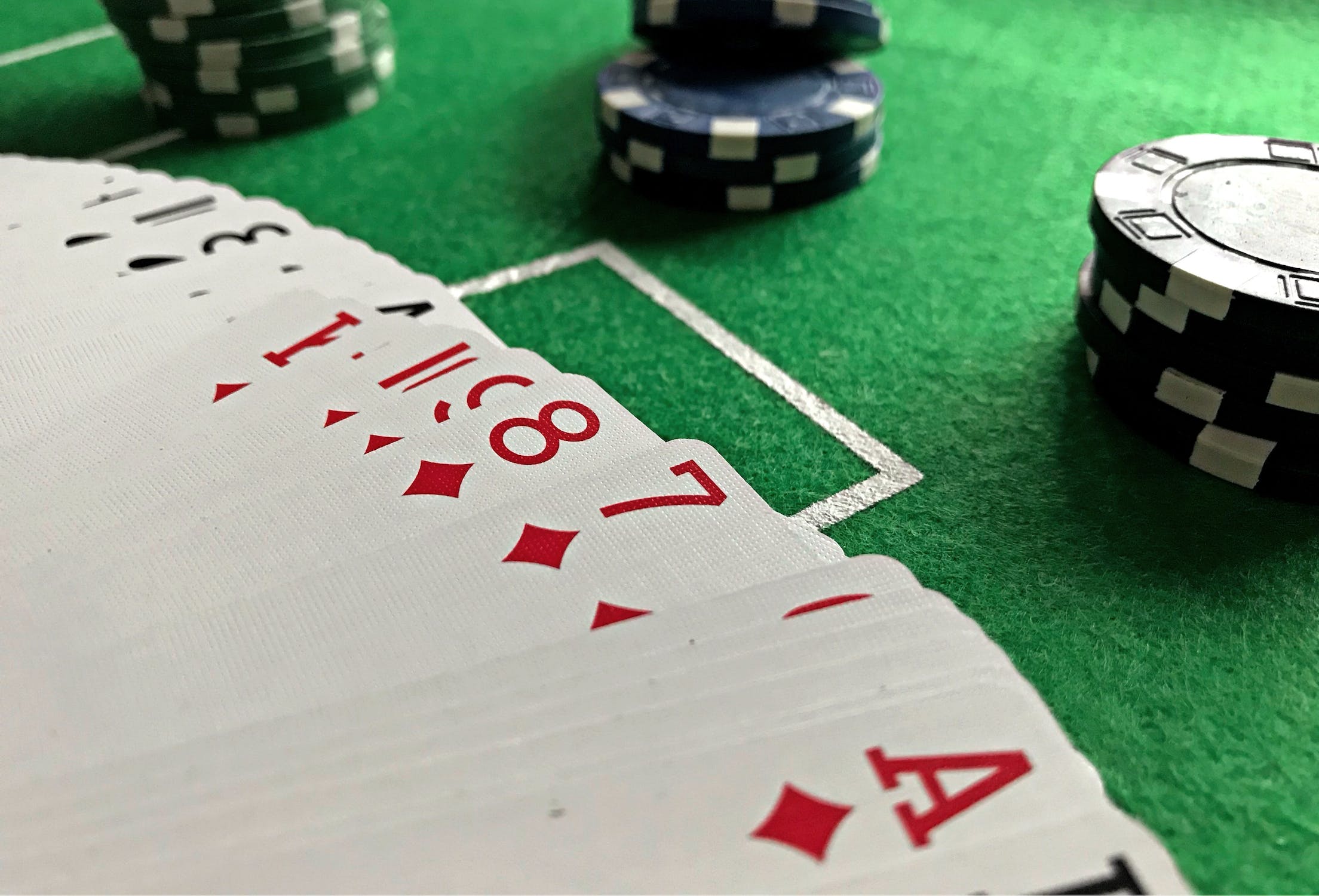The Ultimate Guide to Playing in Live Poker Tournaments that Pro Players Should Know is a comprehensive resource for experienced poker players looking to improve their tournament skills. This guide covers everything from pre-tournament preparation to advanced strategies for navigating the various stages of a tournament. Whether you’re a seasoned pro or just starting out, this guide is an essential tool for anyone looking to succeed in live poker tournaments.
The Importance of Bankroll Management in Live Poker Tournaments
Live poker tournaments are a great way to test your skills against other players and potentially win big. However, playing in these tournaments requires more than just skill and luck. One of the most important aspects of playing in live poker tournaments is bankroll management.
Bankroll management refers to the process of managing your funds in a way that allows you to play in tournaments without risking too much of your money. This is especially important in live poker tournaments, where the buy-ins can be quite high.
The first step in bankroll management is to determine how much money you can afford to lose. This is known as your “bankroll.” Your bankroll should be an amount that you can comfortably afford to lose without it affecting your daily life. It’s important to remember that poker is a game of skill and luck, and even the best players can have losing streaks.
Once you’ve determined your bankroll, the next step is to decide how much of it you’re willing to risk in each tournament. A good rule of thumb is to never risk more than 5% of your bankroll in any one tournament. This means that if your bankroll is $10,000, you should never risk more than $500 in any one tournament.
Another important aspect of bankroll management is to avoid playing in tournaments that are outside of your bankroll. It can be tempting to try to play in higher buy-in tournaments in the hopes of winning big, but this can be a dangerous strategy. If you’re not properly bankrolled for a tournament, you’re more likely to make mistakes and play poorly, which can lead to even bigger losses.
In addition to managing your bankroll, it’s also important to manage your emotions when playing in live poker tournaments. It’s easy to get caught up in the excitement of the game and make impulsive decisions. This can be especially dangerous when you’re playing with a large amount of money on the line.
To avoid making emotional decisions, it’s important to stay focused and disciplined. This means sticking to your bankroll management plan and avoiding tilt – the emotional state that can occur when you’re on a losing streak. If you find yourself getting emotional during a tournament, take a break and step away from the table for a few minutes to regain your composure.
Finally, it’s important to remember that bankroll management is an ongoing process. As you win or lose money in tournaments, your bankroll will change, and you’ll need to adjust your strategy accordingly. This means reevaluating your bankroll and risk tolerance on a regular basis and making adjustments as needed.
In conclusion, bankroll management is a crucial aspect of playing in live poker tournaments. By properly managing your funds, you can minimize your risk and increase your chances of success. Remember to determine your bankroll, avoid playing in tournaments outside of your bankroll, stay disciplined and focused, and adjust your strategy as needed. With these tips in mind, you’ll be well on your way to becoming a successful live poker tournament player.
Mastering the Art of Bluffing in Live Poker Tournaments
One of the most important skills that a player must master in order to succeed in live poker tournaments is the art of bluffing.
Bluffing is a technique used by poker players to deceive their opponents into thinking that they have a better hand than they actually do. It is a crucial skill that can help players win big pots and gain an advantage over their opponents. However, it is also a risky strategy that can backfire if not executed properly.
The first step in mastering the art of bluffing is to understand the different types of bluffs. There are two main types of bluffs: semi-bluffs and pure bluffs. A semi-bluff is when a player bets with a hand that has the potential to improve in the future, such as a flush draw or a straight draw. A pure bluff, on the other hand, is when a player bets with a hand that has no chance of winning, such as a high card or a low pair.
The key to successful bluffing is to choose the right moment to make a move. Bluffing too often can make a player predictable and easy to read, while bluffing too rarely can make a player too cautious and easy to exploit. The best time to bluff is when a player has a good read on their opponent and believes that they can convince them to fold.
Another important aspect of bluffing is to pay attention to the table dynamics. The way that players are betting and reacting to each other can provide valuable information about their hands and their tendencies. For example, if a player has been playing tight and suddenly makes a large bet, it could be a sign that they have a strong hand. On the other hand, if a player has been bluffing frequently and suddenly checks, it could be a sign that they are trying to trap their opponents.
It is also important to consider the size of the pot when bluffing. Bluffing in a small pot is usually not worth the risk, as the potential reward is not significant enough to justify the risk. However, bluffing in a large pot can be a powerful tool, as it can force opponents to make difficult decisions and potentially win a large amount of chips.
One of the most effective ways to bluff in live poker tournaments is to use body language and other nonverbal cues to deceive opponents. This can include things like maintaining eye contact, fidgeting, or acting nervous or confident. However, it is important to be subtle and not overdo it, as opponents can easily pick up on obvious tells.
In conclusion, mastering the art of bluffing is a crucial skill for any poker player looking to succeed in live tournaments. By understanding the different types of bluffs, choosing the right moment to make a move, paying attention to table dynamics, considering the size of the pot, and using body language and other nonverbal cues, players can effectively deceive their opponents and gain an advantage at the table. However, it is important to remember that bluffing is a risky strategy that should be used sparingly and with caution.
Reading Your Opponents: Tips for Live Poker Tournament Success
Live poker tournaments are a great way to test your skills against other players and potentially win big. However, to be successful in these tournaments, you need to be able to read your opponents and make informed decisions based on their behavior. In this article, we will provide you with some tips for reading your opponents and improving your chances of success in live poker tournaments.
The first thing you need to do is pay attention to your opponents’ body language. This can give you valuable information about their hand and their level of confidence. For example, if a player is sitting up straight and looking directly at their cards, they may have a strong hand. On the other hand, if a player is slouching and avoiding eye contact, they may be bluffing.
Another important aspect of reading your opponents is observing their betting patterns. This can give you insight into their hand strength and their overall strategy. For example, if a player consistently bets aggressively, they may have a strong hand. Conversely, if a player is hesitant to bet or only bets small amounts, they may be playing conservatively and could be holding a weaker hand.
It’s also important to pay attention to your opponents’ verbal cues. This can include the tone of their voice, the words they use, and their overall demeanor. For example, if a player is talking a lot and seems overly confident, they may be trying to distract you from their weak hand. On the other hand, if a player is quiet and reserved, they may be trying to hide their strong hand.
In addition to these cues, it’s important to consider the overall context of the game. This includes factors such as the size of the pot, the number of players remaining, and the stage of the tournament. For example, if the pot is large and there are only a few players remaining, your opponents may be more likely to play conservatively and only bet with strong hands.
Finally, it’s important to remember that reading your opponents is not an exact science. There will always be some level of uncertainty and risk involved in any poker game. However, by paying attention to these cues and using them to inform your decisions, you can improve your chances of success in live poker tournaments.
In conclusion, reading your opponents is a crucial skill for success in live poker tournaments. By paying attention to their body language, betting patterns, verbal cues, and the overall context of the game, you can gain valuable insight into their hand strength and overall strategy. While there is always some level of uncertainty involved in poker, these tips can help you make more informed decisions and improve your chances of success. So the next time you’re playing in a live poker tournament, remember to keep these tips in mind and use them to your advantage.
Staying Focused and Avoiding Distractions in Live Poker Tournaments
First and foremost, it is essential to understand that live poker tournaments can be long and grueling. They can last for hours, if not days, and require players to maintain their focus and concentration throughout. Therefore, it is crucial to prepare yourself mentally and physically before entering a tournament. This means getting enough rest, eating well, and staying hydrated.
Once you are physically prepared, it is time to focus on your mental game. One of the most important things you can do to stay focused during a live poker tournament is to eliminate distractions. This means turning off your phone, avoiding conversations with other players, and staying away from anything that might take your attention away from the game.
Another way to stay focused is to develop a routine. This could include things like taking a few deep breaths before each hand, visualizing your strategy, or even listening to music that helps you concentrate. Whatever routine you choose, make sure it is something that works for you and helps you stay focused.
It is also important to remember that live poker tournaments can be stressful, and stress can be a significant distraction. To combat this, try to stay calm and relaxed throughout the tournament. This could mean taking breaks when you need them, practicing mindfulness or meditation, or even just taking a few deep breaths.
Another way to stay focused is to pay attention to your opponents. This means watching their body language, listening to their conversations, and trying to get a read on their strategy. By doing this, you can gain valuable insights into their game and adjust your strategy accordingly.
Finally, it is essential to remember that live poker tournaments are a marathon, not a sprint. This means pacing yourself and not getting too caught up in the moment. It is easy to get excited when you are doing well, but it is important to stay focused and not let your emotions get the best of you.
In conclusion, playing in live poker tournaments can be a challenging but rewarding experience. To be successful, it is essential to stay focused and avoid distractions. This means preparing yourself mentally and physically, eliminating distractions, developing a routine, staying calm and relaxed, paying attention to your opponents, and pacing yourself. By following these tips, you can increase your chances of success and become a pro player in no time.
The Mental Game: Strategies for Maintaining Confidence and Composure in Live Poker Tournaments
To succeed in live poker tournaments, you need to have a strong mental game. In this article, we will discuss some strategies that pro players should know to maintain confidence and composure in live poker tournaments.
Firstly, it is essential to understand that poker is a game of skill and luck. Even the best players in the world can lose a hand or two due to bad luck. Therefore, it is crucial to maintain a positive attitude and not let bad beats affect your game. One way to do this is to focus on the long-term goal of the tournament rather than individual hands. Remember that the ultimate goal is to win the tournament, not just one hand.
Secondly, it is essential to stay focused and avoid distractions. Live poker tournaments can be noisy and chaotic, with players talking, chips clinking, and dealers shuffling cards. It is easy to get distracted by these noises and lose focus on the game. To avoid distractions, try to find a quiet spot in the tournament room where you can concentrate on your game. You can also wear noise-cancelling headphones to block out external noises.
Thirdly, it is crucial to manage your emotions. Poker can be an emotional game, and it is easy to get carried away by your emotions, especially when you are on a winning streak or a losing streak. To maintain composure, try to stay calm and composed, even when you are winning or losing. Avoid celebrating too much when you win a hand or getting angry when you lose a hand. Remember that emotions can cloud your judgment and affect your decision-making abilities.
Fourthly, it is essential to have a game plan. Before entering a live poker tournament, you should have a game plan in place. This plan should include your goals for the tournament, your playing style, and your bankroll management strategy. Having a game plan will help you stay focused and avoid making impulsive decisions during the tournament.
Fifthly, it is crucial to be adaptable. Live poker tournaments can be unpredictable, and you need to be able to adapt to changing situations. For example, if you notice that your opponents are playing aggressively, you may need to adjust your playing style to be more defensive. Similarly, if you notice that your opponents are playing passively, you may need to be more aggressive to take advantage of their weakness.
Lastly, it is essential to learn from your mistakes. No one is perfect, and everyone makes mistakes. The key is to learn from your mistakes and use them to improve your game. After each tournament, take some time to reflect on your performance and identify areas where you can improve. This could be anything from your playing style to your bankroll management strategy.
In conclusion, playing in live poker tournaments can be a challenging but rewarding experience for any poker player. To succeed in live poker tournaments, you need to have a strong mental game. This includes maintaining confidence and composure, staying focused, managing your emotions, having a game plan, being adaptable, and learning from your mistakes. By following these strategies, you can improve your chances of winning a live poker tournament and take your game to the next level. The Ultimate Guide to Playing in Live Poker Tournaments that Pro Players Should Know provides valuable insights and strategies for players looking to improve their game in live poker tournaments. From understanding the importance of table position to managing your bankroll, this guide covers all the essential aspects of playing in live poker tournaments. By following the tips and techniques outlined in this guide, pro players can enhance their skills and increase their chances of winning big in live poker tournaments.




